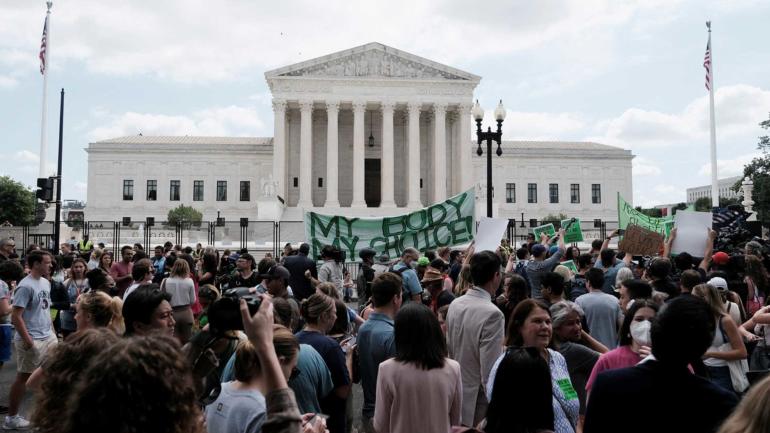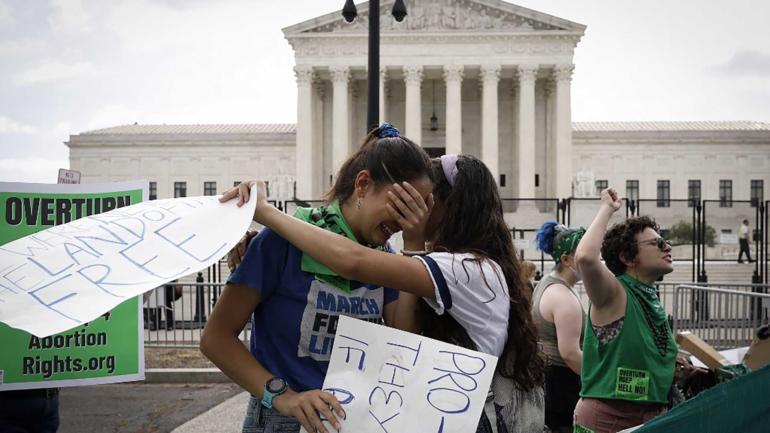The Supreme Court has ended the nation’s constitutional protections for abortion that had been in place nearly 50 years in a decision by its conservative majority to overturn Roe v. Wade. Friday’s outcome is expected to lead to abortion bans in roughly half the states.
The decision, unthinkable just a few years ago, was the culmination of decades of efforts by abortion opponents, made possible by an emboldened right side of the court that has been fortified by three appointees of former President Donald Trump.

Both sides predicted the fight over abortion would continue, in state capitals and in Washington, and Justice Clarence Thomas, part of Friday’s majority, called on the court to overturn other high court rulings protecting same-sex marriage, gay sex and the use of contraceptives.
The ruling came more than a month after the stunning leak of a draft opinion by Justice Samuel Alito indicating the court was prepared to take this momentous step.
It puts the court at odds with a majority of Americans who favored preserving Roe, according to opinion polls.
Alito, in the final opinion issued Friday, wrote that Roe and Planned Parenthood v. Casey, the 1992 decision that reaffirmed the right to abortion, were wrong the days they were decided and must be overturned.
“We therefore hold that the Constitution does not confer a right to abortion. Roe and Casey must be overruled, and the authority to regulate abortion must be returned to the people and their elected representatives,” Alito wrote, in an opinion that was very similar to the leaked draft.
Authority to regulate abortion rests with the political branches, not the courts, Alito wrote.
Joining Alito were Thomas and Justices Neil Gorsuch, Brett Kavanaugh, Amy Coney Barrett. The latter three justices are Trump appointees. Thomas first voted to overrule Roe 30 years ago.
Four justices would have left Roe and Casey in place.
The vote was 6-3 to uphold the Mississippi law, but Chief Justice John Roberts didn’t join his conservative colleagues in overturning Roe. He wrote that there was no need to overturn the broad precedents to rule in Mississippi’s favor.
Justices Stephen Breyer, Sonia Sotomayor and Elena Kagan — the diminished liberal wing of the court — were in dissent.
“With sorrow—for this Court, but more, for the many millions of American women who have today lost a fundamental constitutional protection—we dissent,” they wrote, warning that abortion opponents now could pursue a nationwide ban “from the moment of conception and without exceptions for rape or incest.”
The ruling is expected to disproportionately affect minority women who already face limited access to health care, according to statistics analyzed by The Associated Press.
 CGTN America
CGTN America
 Abortion rights activists Carrie McDonald (L) and Soraya Bata react to the Dobbs v Jackson Women’s Health Organization ruling which overturns the landmark abortion Roe v. Wade case in front of the U.S. Supreme Court on June 24, 2022 in Washington, DC
Abortion rights activists Carrie McDonald (L) and Soraya Bata react to the Dobbs v Jackson Women’s Health Organization ruling which overturns the landmark abortion Roe v. Wade case in front of the U.S. Supreme Court on June 24, 2022 in Washington, DC
